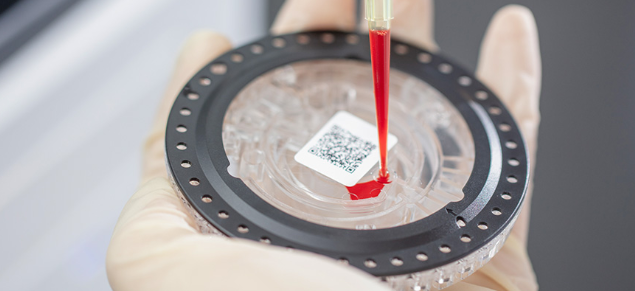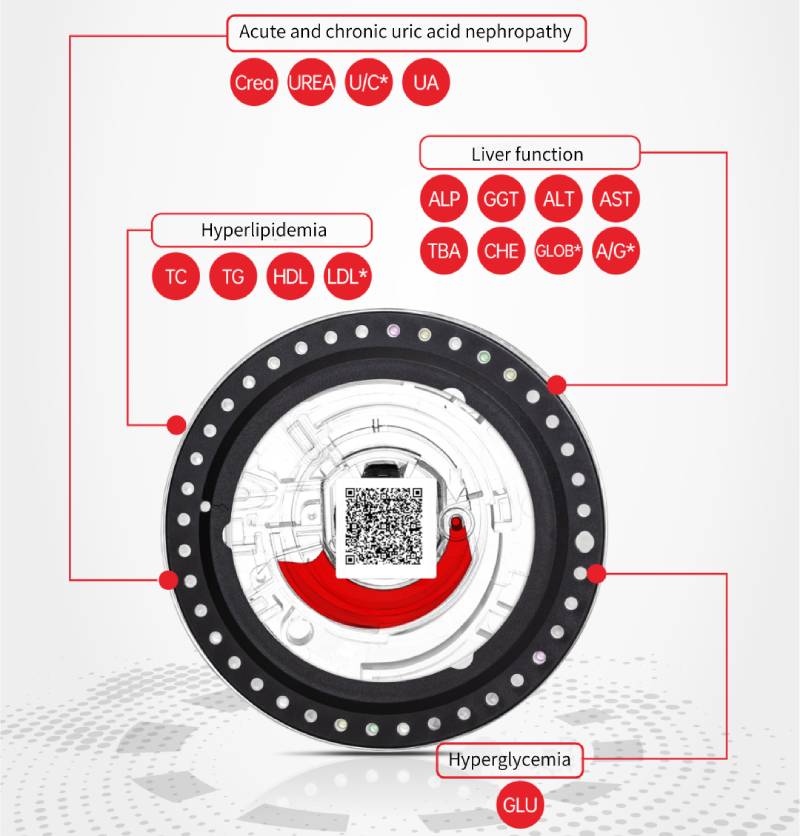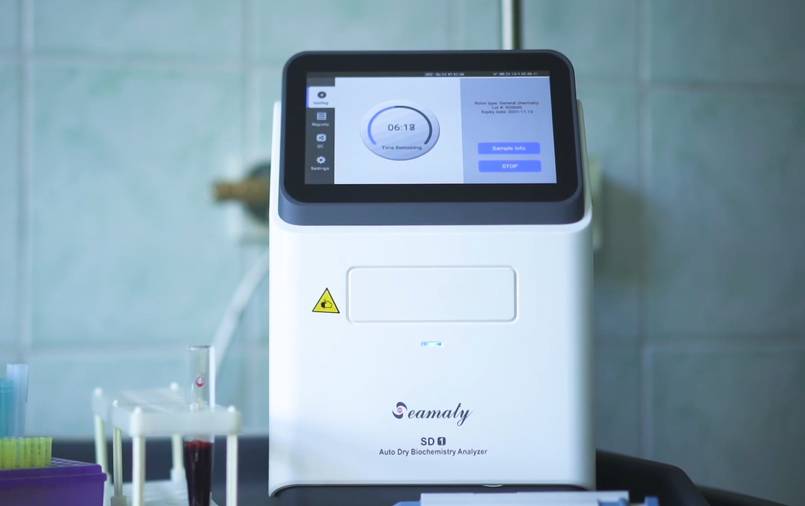In recent years, more and more people are found to have high blood uric acid levels during medical checkups, especially in middle-aged and elderly people, and men are significantly higher than women. Blood uric acid has become a common chronic disease after hypertension, hyperlipidemia and hyperglycemia.
So, does high uric acid necessarily cause gout? What are the specific dangers? And how should we prevent and treat it?
Does high uric acid necessarily cause gout?
High uric acidemia is the material basis for gout. Generally speaking, the higher the blood uric acid level, the greater the risk of gout attack. Studies have reported that the prevalence of gout is 1.3%, 3.2%, and 17.6% for serum uric acid <360 μmol/L, 360-480 μmol/L, and >480 μmol/L, respectively.
However, hyperuricemia ≠ gout. This is because gout attacks are associated not only with high uric acid, but also with the body's internal environment, fluctuations in uric acid, and many precipitating factors (e.g., exposure to cold, overwork, joint damage, alcohol abuse, etc.).
In short, without hyperuricemia, you will not have gout. However, having hyperuricemia does not necessarily mean that gout will occur.
Gout patients do not always have high blood uric acid?

During an acute attack of gout, patients often have lower than usual uric acid levels, which can even be normal. This is because, during an acute attack of gout, a large amount of uric acid precipitates out of the blood and is deposited in the joints, when the amount of uric acid in the blood is relatively reduced.
Clinically, some patients with gout, despite their very typical symptoms, are missed for years because they are tested during the acute phase and the test shows that the blood uric acid is not high, and they are not rechecked in time afterwards.
Therefore, clinically, for such suspected gout patients, blood uric acid should be rechecked after the acute attack period to clarify the diagnosis.
The danger of high uric acid, is it just gout?
When it comes to the dangers of high uric acid, it is easy to think of gouty arthritis, commonly known as "gout". In fact, this is only the tip of the iceberg of the dangers of high uric acid. Long-term high uric acid can also lead to
1. Kidney damage
Uric acid crystals are deposited in the kidneys, leading to damage to the renal blood vessels and interstitial fluid, causing acute or chronic uric acid nephropathy, kidney and ureteral stones.
2. Arteriosclerosis and hypertension
Medical research has shown that high uric acid can stimulate blood vessel walls, causing endothelial damage and lipid deposition, leading to atherosclerosis. It has been confirmed that high uric acid is an independent risk factor for the development of hypertension, and every 60 μmol/L increase in uric acid level increases the incidence of hypertension by 25%.
3. Cardiovascular disease
Chronic hyperuricemia accelerates atherosclerosis. Epidemiological surveys have shown that in patients with established coronary artery disease, the mortality rate is five times higher in those with blood uric acid above 450 μmol/L than in those with blood uric acid below 300 μmol/L. Compared to people with normal uric acid, people with high uric acid have a 47% increased risk of stroke and a 26% increased risk of death from stroke.
4. Disorders of glucose metabolism
High uric acid damages pancreatic β-cells, reduces the function of pancreatic islets, and leads to disorders of glucose metabolism, which is an independent risk factor for diabetes. The higher the blood uric acid level, the greater the risk of developing diabetes. Studies have shown that for every 60 μmol/L increase in uric acid levels, the risk of developing new diabetes increases by 17%.
Hyperuricemia is a "multi-dimensional" disease that can be easily overlooked because of its insidious onset and slow progression. Strict control of blood uric acid is important not only to prevent gout attacks, but also to prevent the risk of complications.
What should I pay attention to when testing blood uric acid?
Blood uric acid levels are affected by many factors such as the patient's physical condition, diet in the days prior to the blood draw, the level of activity, and the medication currently being used. To ensure that the test results are as accurate and reliable as possible, the following points should be noted.
01 Fasting blood test
Blood should be taken early in the morning on an empty stomach. Two days before the uric acid test, avoid eating large amounts of meat, fish, shrimp and other foods high in purines, and do not drink alcohol, as this may cause the test results to be high.
02 Do not exercise vigorously before the blood test
Strenuous exercise (in this case, anaerobic exercise) can increase blood uric acid. Therefore, before the test, do not run, ascend the stairs quickly, or exercise with weights.
03 Pay attention to the effect of medication
Some medications such as aspirin, diuretics and certain antihypertensive drugs (e.g., beta-blockers) can affect the excretion of uric acid. It is recommended to stop taking these medications for 3 to 5 days and then check the blood uric acid level.
Note: Due to the high volatility of blood uric acid, a diagnosis cannot be made based on a single blood uric acid test result. It should be measured more than 3 times at the same time on different days and the average value should be taken to obtain a reliable result.
How to keep uric acid (UA) at normal value?
01 Adhere to a low purine diet
Adopt a healthy lifestyle and avoid high intake of high purine foods (seafood, animal offal, thick gravy soup, etc.). A daily purine intake of <150mg.
Prefer protein sources with low purine content, such as milk, eggs, etc. Prohibition of alcohol consumption (alcohol metabolism can increase the concentration of lactic acid in the blood, which can inhibit the secretion of uric acid by the renal tubules and reduce the ability of the kidneys to excrete uric acid).
Less sweets and drinks containing fructose, more water (more than 2000ml) and alkalinization of urine (can be measured with pH test paper, if it is 6~6.5 then alkalinization is achieved) can promote uric acid excretion.
Also different food preparation and cooking methods (boiling or blanching, which reduces the purine value of the food) can affect the purine level in food.
02 Moderate exercise for weight control
Exercise more (but avoid strenuous exercise), subject to slight sweating. Choose the right kind of exercise, such as swimming, easy yoga, cycling, etc., to boost your metabolic rate and improve your mental pleasure.
03 Adhere to scientific medication
It is a step-by-step process and should be customized under the guidance of a doctor. Be cautious with drugs that may affect uric acid excretion or that can increase uric acid, such as aspirin, hydrochlorothiazide, anti-tuberculosis drugs, etc.
04 Pay attention to routine physical examination
Regular testing is very important for patients with hyperuricemia. Seamaty fully automated dry biochemistry analyzer SD1+ comprehensive 17-item test kit. With only 100 ul of blood, it can accurately detect hyperuricemia and 3 complications in 12 minutes, so that early detection and early treatment can be achieved and prevented.





